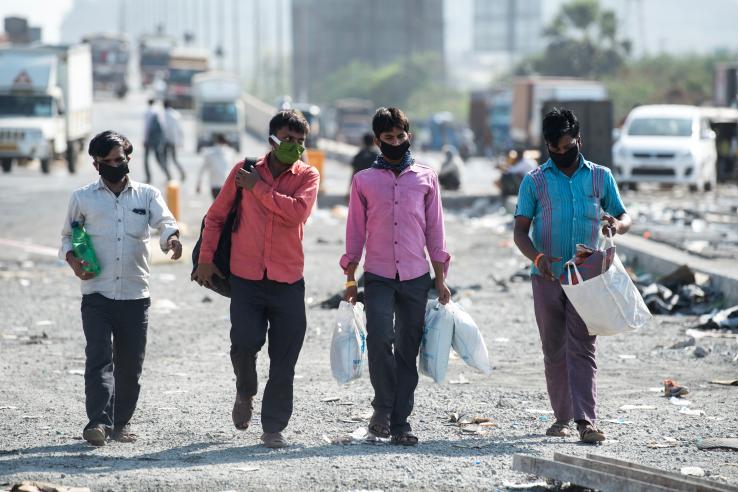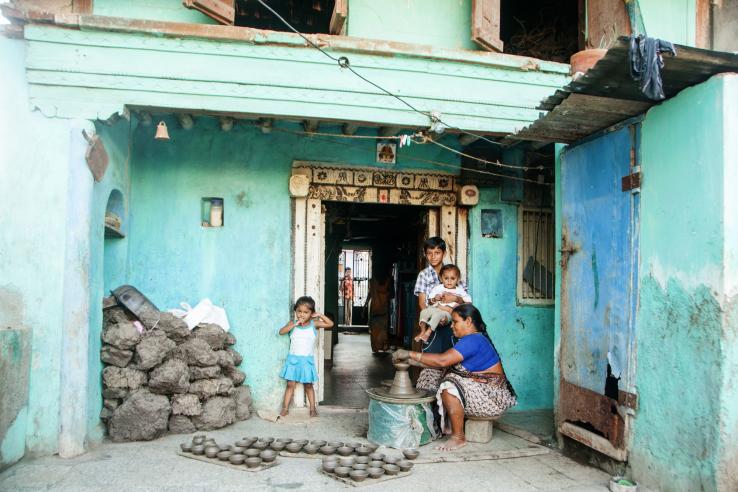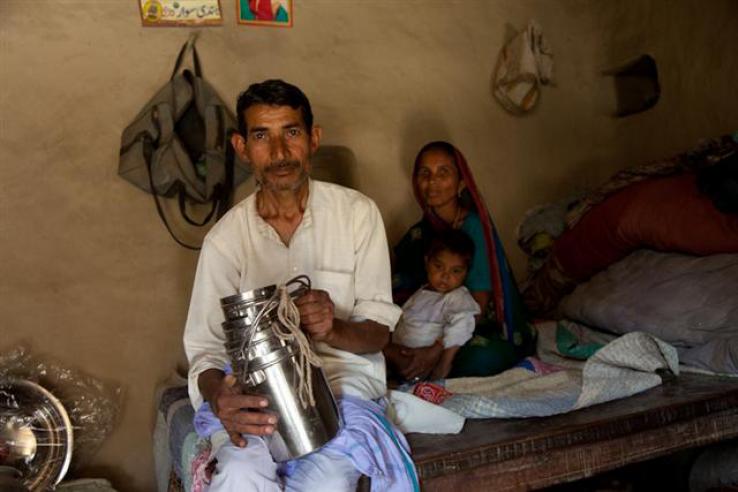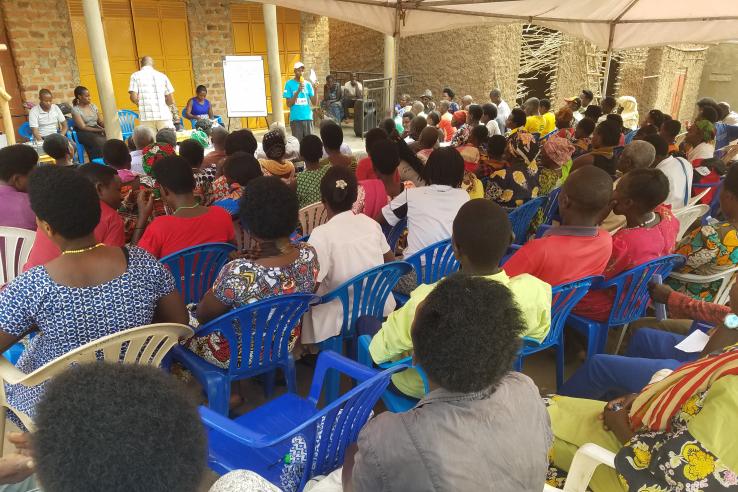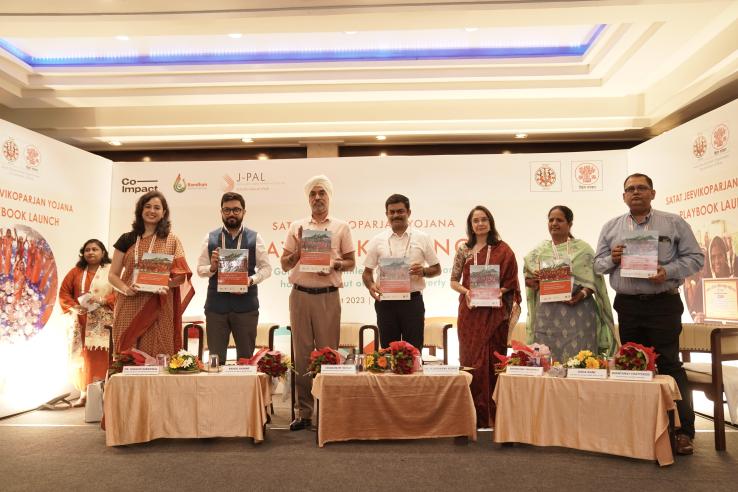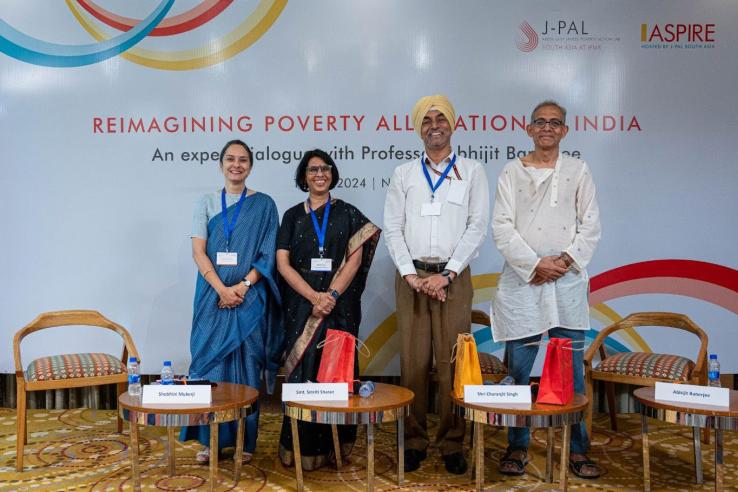Displaying 2161 - 2175 of 8331
Evaluation
In France, researchers evaluated the effect of a financial independence and social integration program for young adults living in government-subsidized housing. They analyzed its impact on the young adults’ professional lives, housing situations, financial independence, and general welfare.
Event
In the wake of the dynamic flows of the migrant labor force in India due to COVID-19 and resulting lockdown measures, state governments, policymakers, and researchers are faced with a number of complex questions: Will the ongoing pandemic make local, partial, or full lockdowns necessary? Will...
Evaluation
Researchers conducted a randomized evaluation of a video-based financial education course on participants’ financial behaviors in India to study which components of financial education programs are most effective. While the course alone had no impact on participants’ abilities to carry out financial calculations, it influenced their awareness of and attitudes towards financial products. Additionally, personalized supplements to the course increased effects on budgeting and saving.
Evaluation
In 2009, researchers tested the relative effectiveness of different employment services targeted at university dropouts. Overall, intensive counseling increased the number of job interviews youth received and improved their perceptions of their career prospects and their trust in the private sector.
Evaluation
In Uganda, researchers are evaluating the impact of the “Solar Suitcase” designed specifically for maternity care facilities on the reliability of light, quality of care, and health worker satisfaction.
Evaluation
Researchers evaluated the effect of personalized counseling to French youth on finding an apprenticeship, completing it, and securing longer-term employment. Personalized counseling encouraged more youth to start a pre-apprenticeship training program, but did not improve take-up into apprenticeship. For youth already in an apprenticeship, personalized counseling led more youth to break contracts and change employers.
Evaluation
Researchers evaluated whether the ethnicities of wholesale buyers and sellers in Chennai, India, affected the transaction terms. They found that traders offered lower prices to buyers of the same ethnicity, but not necessarily because they trusted them more.
Resource
Basic page
How can we design more effective social programmes across Europe? J-PAL affiliated researchers focus on the contribution made by randomised evaluations to the development of high-quality evidence for informing social policy.
Evaluation
Researchers evaluated the effect of personalized options information on seniors' plan choices. They found that people who received personalized information were more likely to change plans, resulting in an average saving of US$100 per year. This suggests that direct information delivery can decrease the difficulty of comparative research, thereby helping consumers make more informed decisions about government services.
Evaluation
Researchers evaluated the effect of the framing of potential investment options on people's investment in life annuities. They found that individuals were more likely to prefer an annuity when their options emphasized future consumption, rather than framing options in terms of investments. These preferences were revealed in hypothetical, but realistic, scenarios.
Evaluation
Researchers in Uganda assessed the impact of VSLAs on access to financial services, income, food security, and education.
Event
The Bihar Rural Livelihoods Promotion Society (JEEViKA), in collaboration with Bandhan-Konnagar and J-PAL South Asia, hosted the launch of a new playbook capturing five years of learnings from Satat Jeevikoparjan Yojana (SJY)—the world’s first government-led scale-up of the Graduation Approach. The...
Event
On July 11, 2024, J-PAL South Asia hosted an exclusive roundtable in New Delhi with Nobel Laureate and J-PAL Co-Founder Professor Abhijit Banerjee, bringing together senior leaders from government, philanthropy, and civil society to reimagine how India can tackle extreme poverty through scalable...

